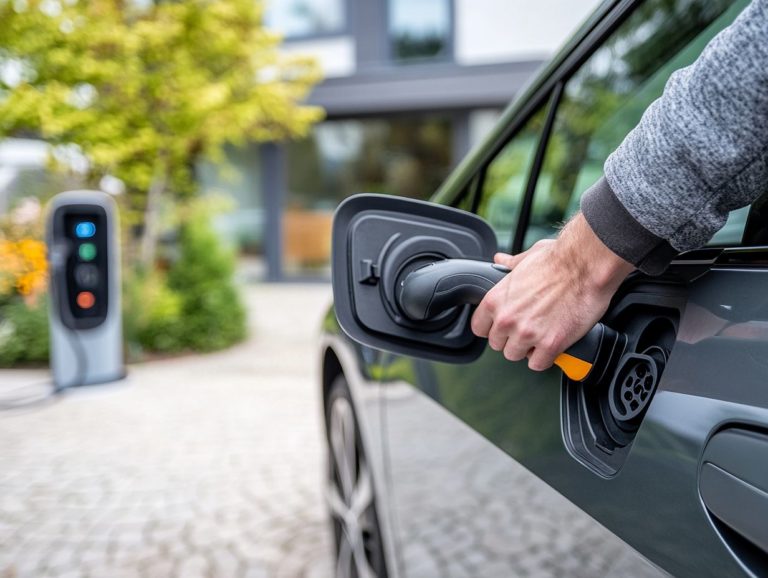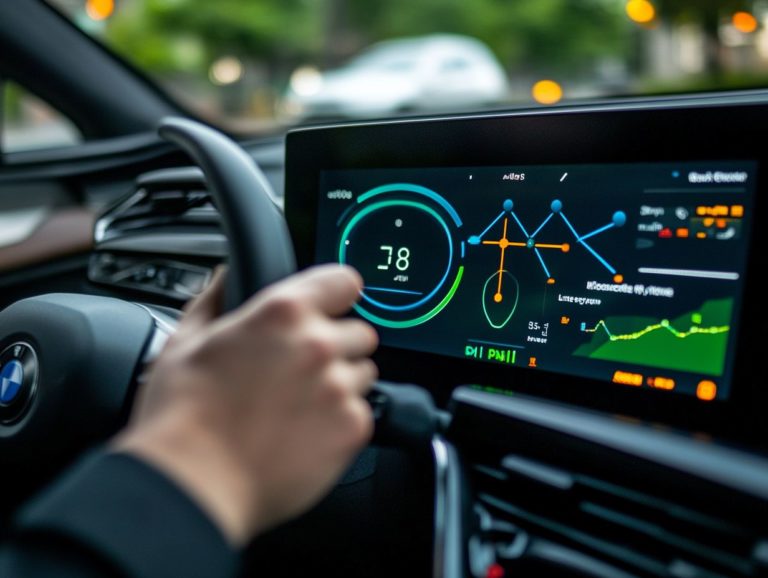How to Extend Your EV’s Battery Life
Electric vehicles (EVs) are changing how we think about transportation. Understanding EV batteries is key to improving their performance and lifespan.
This article explores the different types of EV batteries, the factors affecting their lifespan, and effective strategies to maximize battery life.
From smart charging techniques to driving habits that extend your range, you ll gain valuable insights to enhance your EV experience, regardless of your level of expertise.
Join us to discover how to keep your EV battery healthy and efficient!
Contents
- Key Takeaways:
- Get to Know Your EV Battery
- Maximizing Battery Life
- Tips for Charging and Discharging
- Proper Maintenance and Care
- Extending Battery Range
- Other Factors to Consider
- Frequently Asked Questions
- How do I extend my EV s battery life?
- How often should I charge my EV s battery?
- Can I use any charging level for my EV s battery?
- Is it okay to use regenerative braking all the time?
- Can I use a battery cooling system for my EV s battery?
- What should I do if my EV s battery is reaching the end of its lifespan?
Key Takeaways:
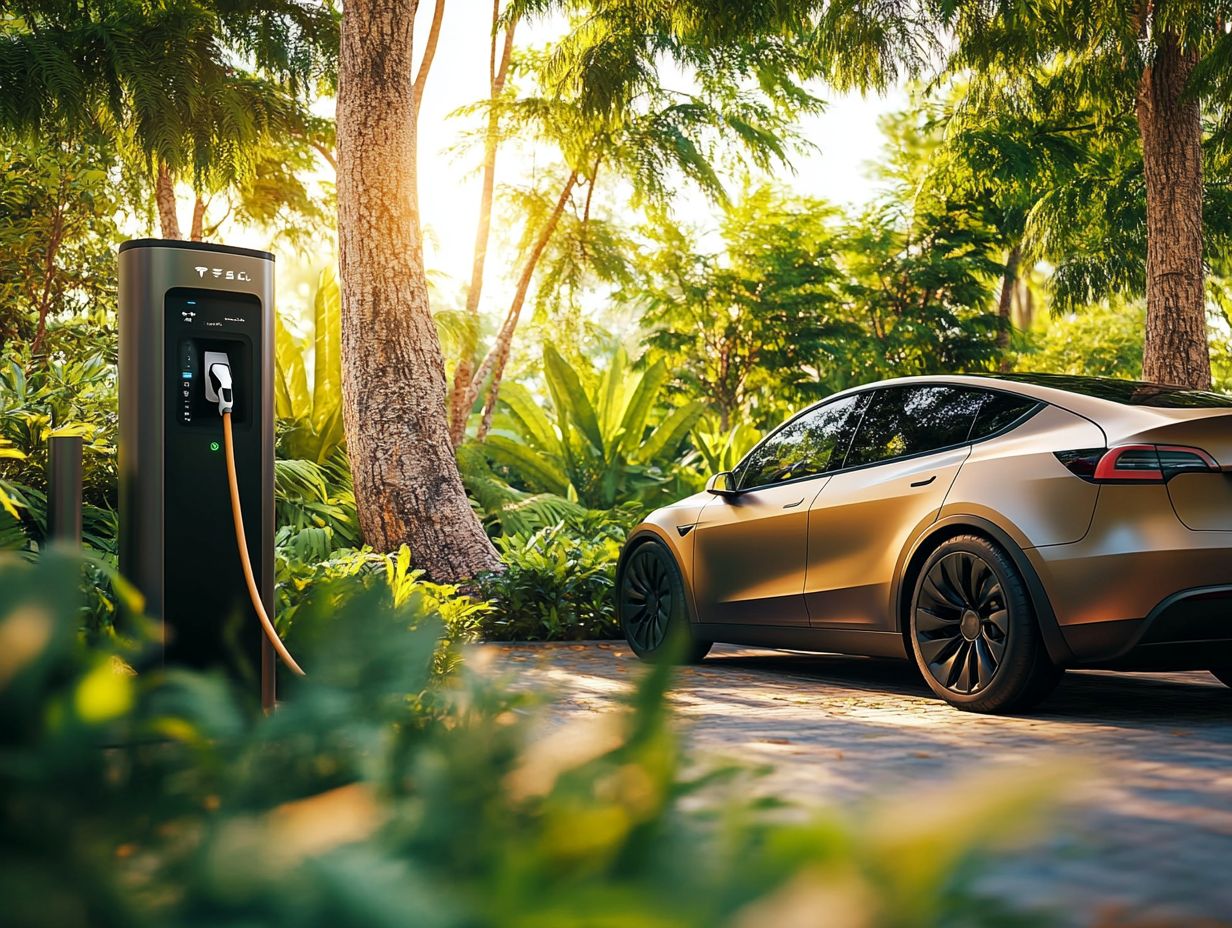
- Understand your EV battery type and factors affecting its life to make informed usage and maintenance decisions.
- Maximize battery life by following best practices for charging and discharging, and regularly maintaining your EV battery.
- Extend your battery range by practicing efficient driving techniques and utilizing regenerative braking. Consider climate and driving habits when planning routes to optimize battery life.
Get to Know Your EV Battery
Knowing your EV battery is essential for maximizing its performance and longevity. The batteries, particularly the lithium-ion types used in electric cars, are vital components that directly impact your vehicle’s overall efficiency, charging range, and environmental footprint.
Innovations in battery technology, led by companies like Tesla, BYD, and Panasonic, play a crucial role in improving battery life and performance reliability. They address critical issues like battery degradation and charging efficiency, ensuring your driving experience remains effective and sustainable.
Types of EV Batteries
The most common type of EV battery available is the lithium-ion battery, noted for its impressive energy density and efficiency. This makes it the preferred choice for top manufacturers like Tesla and BYD.
Thanks to technological advancements, these batteries have boosted electric vehicle performance, offering longer ranges and faster charging times compared to older battery technologies. While lithium-ion batteries dominate, keep an eye on other options like nickel-metal hydride and solid-state batteries, which are gaining popularity for their unique advantages.
For example, nickel-metal hydride batteries, often found in older hybrid models, are durable but lack the energy density of lithium-ion batteries.
Manufacturers like Toyota are exploring solid-state battery technology, promising enhanced safety and better energy capacity. This ever-evolving landscape of EV batteries highlights the critical need for continuous innovation in the electric vehicle sector.
Factors Affecting Battery Life
Several factors can significantly impact your electric vehicle’s battery life, including charging cycles, temperature control, and understanding how to keep your EV charger maintained, along with the overall environmental impact.
Understanding how these elements interact is vital for maximizing performance. For instance, frequent fast charging can raise temperatures, accelerating degradation and shortening the battery’s lifespan. Conversely, maintaining a moderate temperature is crucial, as extreme heat or cold can adversely affect battery chemistry.
Regularly charging to full capacity or allowing the battery to drain completely can diminish efficiency. By adopting mindful charging practices, such as avoiding extreme charge states and parking in a temperature-regulated environment, you can greatly enhance your electric vehicle’s battery longevity and reliability. For more tips, check out best practices for EV battery care.
Maximizing Battery Life
To maximize your EV battery’s life, it’s vital to follow strategies designed to extend its longevity and improve charging efficiency. By prioritizing proper care and maintenance, you can ensure your battery operates at its best for years to come.
Tips for Charging and Discharging
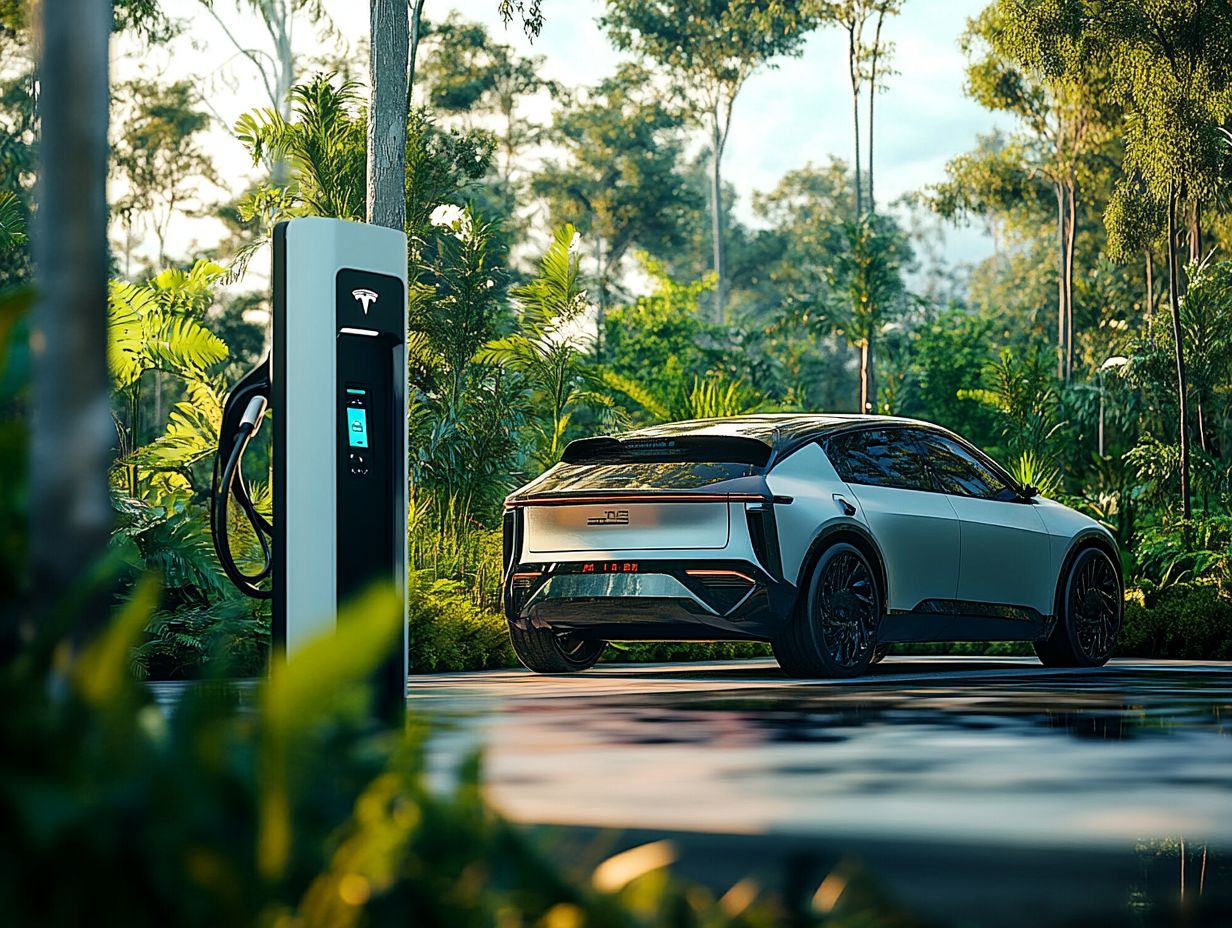
Effective charging tips can greatly enhance your EV battery’s performance and lifespan. It’s especially beneficial to use charging stations with fast charging capabilities.
To maintain your battery life, aim to keep the charge between 20% and 80%. Fast charging is convenient during quick stops, but frequent use can create excess heat, affecting long-term health. When possible, standard chargers are easier on the battery.
Utilize apps that show charging station locations and real-time availability. This will ensure convenience and efficiency during your travels.
Proper Maintenance and Care
Taking care of your EV battery is essential for efficient operation, and knowing how to optimize charging for your EV will also help you comply with your battery warranty.
Establishing regular battery maintenance routines can significantly extend the lifespan of your battery. By checking the system that oversees battery health, you can identify potential issues early, reducing the risk of unexpected failures.
Monitoring your battery’s condition helps you understand its capacity and charging patterns, allowing for timely interventions. The result is a longer-lasting battery and improved reliability, leading to a better driving experience.
Investing time in these maintenance practices yields significant rewards in both performance and peace of mind.
Extending Battery Range
To extend your EV’s electric range, implement efficient driving techniques that optimize performance while conserving battery life, including tips on how to optimize your EV’s range.
Efficient Driving Techniques
Efficient driving techniques are crucial for maximizing your electric vehicle’s range and minimizing battery drain.
Favor smooth acceleration over quick starts to reduce power draw from the battery. Maintaining a steady speed, ideally within your vehicle’s optimal range, also cuts down unnecessary energy use.
If available, use eco-driving modes to enhance your efficiency by optimizing the vehicle’s systems for energy conservation. These strategies improve driving performance and contribute to battery longevity, leading to a more sustainable driving experience.
Using Regenerative Braking
Regenerative braking is a fantastic feature that optimizes battery usage while enhancing range and performance reliability!
This system captures kinetic energy that would typically be lost during braking, converting it into electrical energy and returning it to the battery. This means fewer stops at charging stations, allowing for longer, uninterrupted journeys.
To maximize regenerative braking, try to anticipate stops earlier for smoother deceleration and better energy recovery. Utilizing modes that boost this feature during city driving can extend your overall battery life and range.
Other Factors to Consider
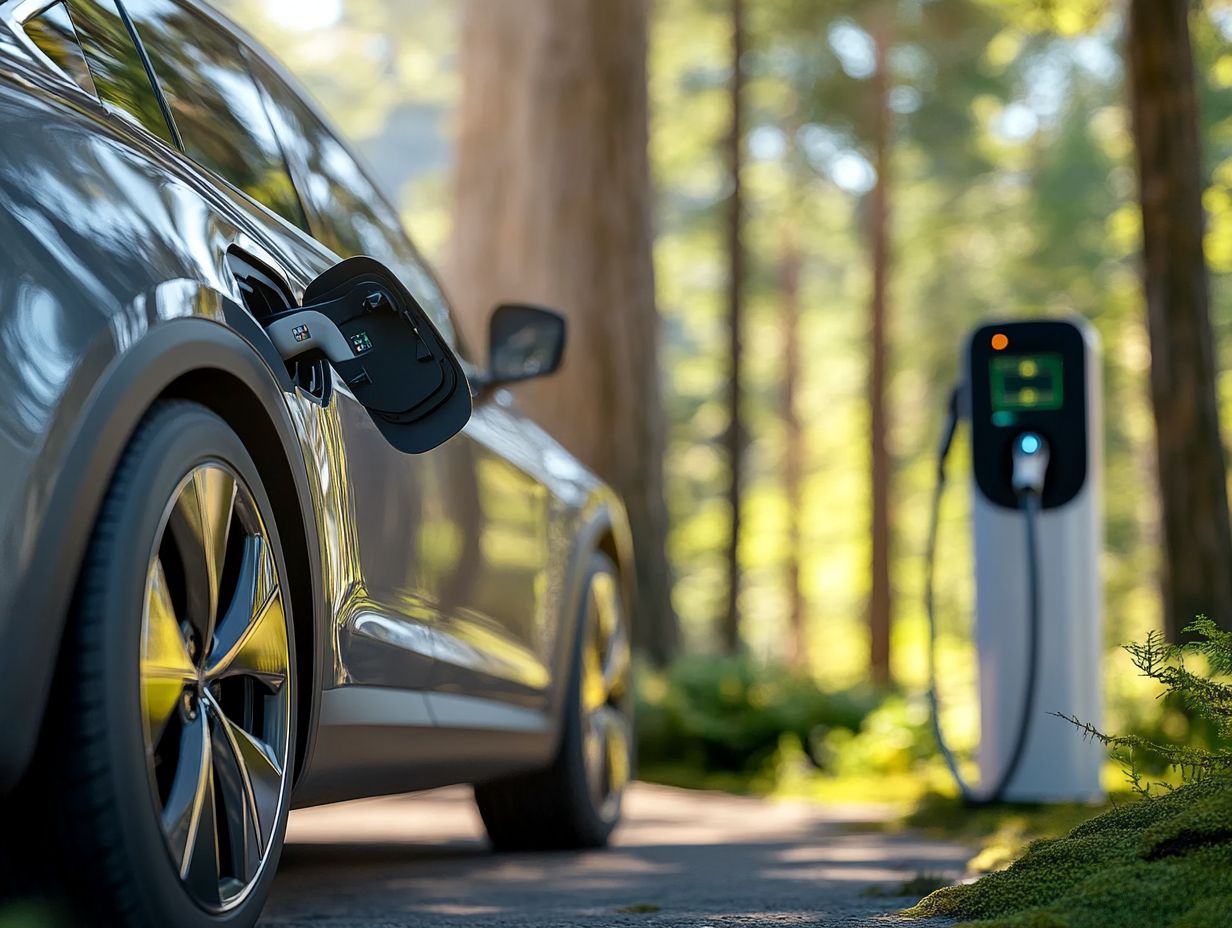
External factors like climate, weather conditions, and your driving habits significantly affect your electric vehicle’s battery health and longevity. Understanding these elements can help you prepare your EV for long trips and boost its performance while extending its lifespan.
Want to dive deeper? Check out more tips and resources to maximize your EV experience!
Climate and Weather
Climate and weather play a crucial role in battery performance and degradation. Temperature control is essential for your EV maintenance.
Extreme temperatures can significantly impact your battery. High heat accelerates chemical reactions within the battery, leading to faster aging and a reduced range. Conversely, cold weather slows those reactions, which can affect your charging and discharging capabilities. In humid environments, moisture presents challenges that can impact your battery’s lifespan.
Want to keep your battery in top shape? Here are some quick tips:
- Park in shaded areas or garages to protect your battery from intense heat.
- Invest in battery insulation for colder months.
Regularly check your battery s health to avoid unexpected issues and utilize battery management systems to boost performance, ensuring your vehicle remains reliable in any climate.
Driving Habits and Route Planning
Your driving habits and route planning significantly influence your electric vehicle’s battery efficiency, performance, and lifespan, so knowing how to handle EV battery replacement is also crucial for long-term care.
By being mindful of your driving style and route, you can enhance battery longevity. For example, planning routes with real-time traffic data helps you avoid congested areas that require frequent acceleration and braking—two actions that quickly deplete battery life in electric vehicles.
Incorporating strategically placed charging stations into your journey ensures you can recharge when needed, alleviating the anxiety of running low on battery.
Embrace smoother driving techniques, like gradual acceleration and deceleration, for an extended range and a more enjoyable driving experience.
Frequently Asked Questions
How do I extend my EV s battery life?
To extend your EV s battery life, follow these tips:
- Avoid frequent deep discharges by charging your battery regularly.
- Use regenerative braking, which helps recharge your battery while driving.
- Keep your battery cool by parking in shaded areas or using a battery cooling system.
- Avoid fast charging too often as it can degrade the battery.
- Use the recommended charging level for your battery.
- Limit the use of energy-draining features, such as air conditioning, to conserve battery life.
How often should I charge my EV s battery?
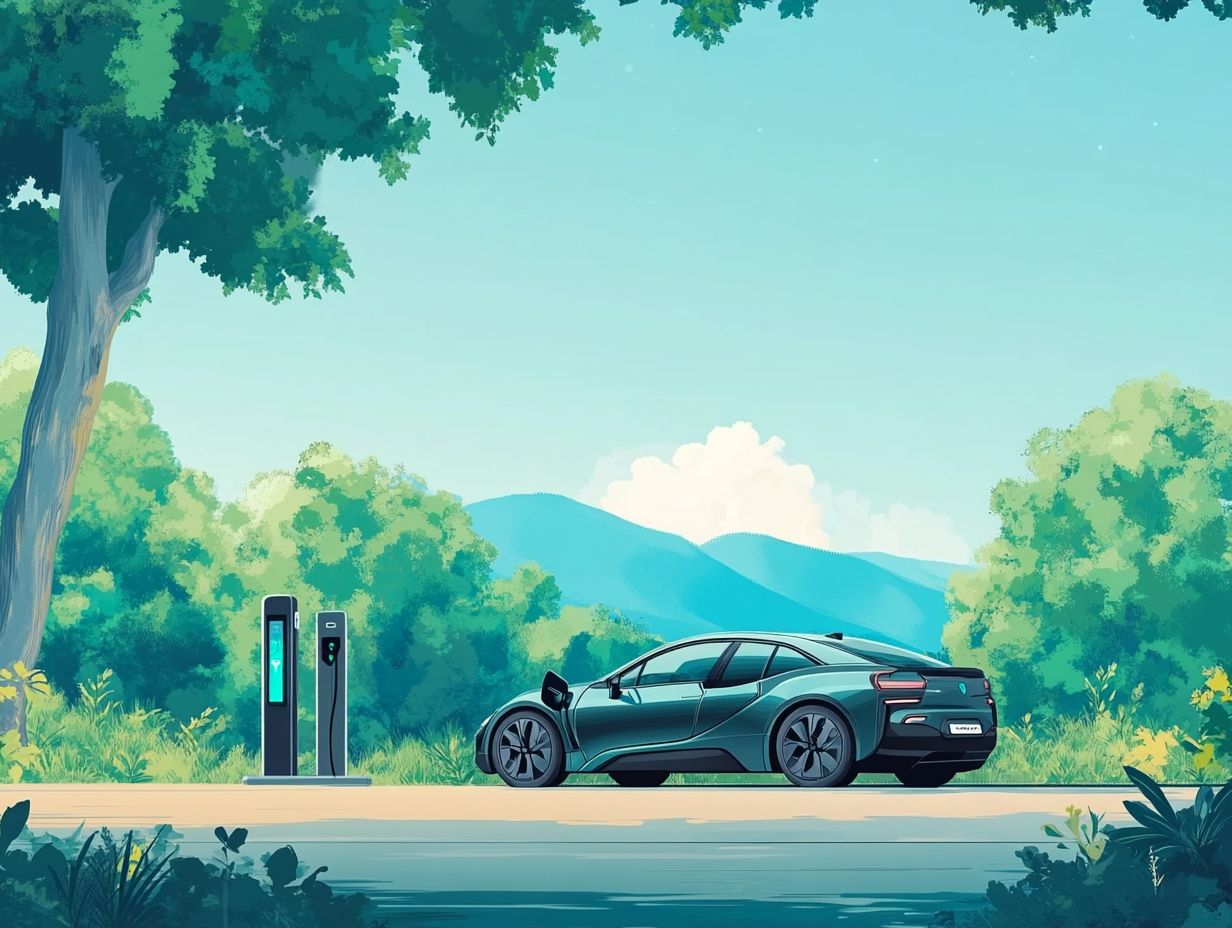
It is recommended to charge your EV s battery regularly, preferably every day or every other day. This helps avoid deep discharges that can reduce the battery s lifespan. However, do not overcharge the battery, as that can also cause damage.
Can I use any charging level for my EV s battery?
No, it is important to use the recommended charging level for your EV s battery. This information can be found in your vehicle s manual or by consulting the manufacturer. Using a higher or lower charging level can damage the battery and reduce its lifespan.
Is it okay to use regenerative braking all the time?
While using regenerative braking can help charge your EV s battery, it is not recommended to use it all the time. Excessive use can cause the battery to overheat and degrade its performance over time. Use it sparingly and rely on traditional braking as well.
Can I use a battery cooling system for my EV s battery?
Yes, a battery cooling system can help keep your EV s battery cool and extend its lifespan. This is especially beneficial in hot climates where high temperatures might negatively impact the battery s performance. Consult with your vehicle s manufacturer for recommended cooling systems.
What should I do if my EV s battery is reaching the end of its lifespan?
If your EV s battery is nearing the end of its lifespan, it is recommended to have it replaced by a professional. Attempting to replace the battery yourself can be dangerous and may void your vehicle s warranty. Properly recycle the old battery to reduce environmental impact.
Take these steps today to ensure a long-lasting, reliable battery!


